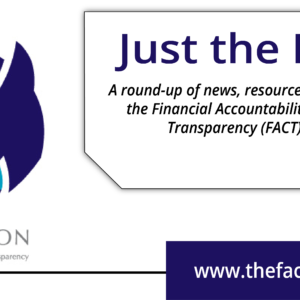
Crucial Funds Will Support the Financial Crimes Enforcement Network in Finalizing Overdue Anti-Money Laundering Reforms: Just the FACTs: July 25th
This new appropriations budget represents a 31 percent increase in FinCEN’s budget over FY2022 enacted levels and meets the amount requested by the Biden Administration in the President’s discretionary budget request earlier this year.

